Important Skills to Refine as an Aspiring Synthetic Chemist
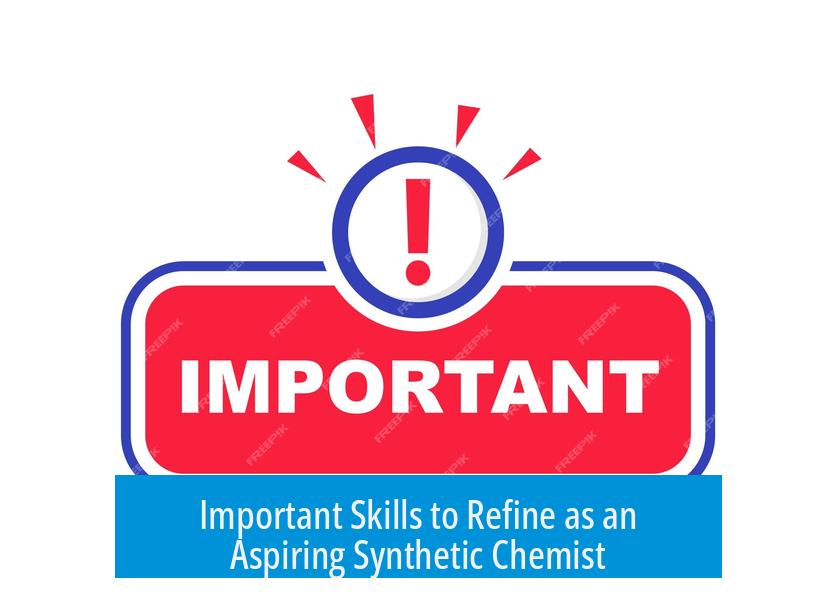
An aspiring synthetic chemist must develop a precise mix of practical, analytical, and theoretical skills. Mastery of analytical techniques, reaction mechanism understanding, and safety awareness form the foundation. Additional skills, including troubleshooting, reaction scaling, and collaboration, further define a successful practitioner.
1. Mastery of Analytical Techniques
Analytical techniques are critical tools for synthetic chemists. They provide real-time insight into reaction progress and product purity.
- Thin Layer Chromatography (TLC): Frequent use of TLC helps monitor reactions quickly. It distinguishes reaction progress, identifies product phases, and detects impurities without consuming much time.
- Nuclear Magnetic Resonance (NMR): Proficiency in 1H NMR and two-dimensional techniques (COSY, HSQC, HMBC) is necessary. Recording spectra of starting materials ensures purity and identifies degradation. Quick NMR checks before purification confirm reaction success.
- Workup and Purification: Strong knowledge of standard techniques like liquid-liquid extraction and flash column chromatography is essential. Mastery here reduces errors and improves yield.
2. Solvent and Reaction Setup Expertise
Reactions often fail due to improper solvent or setup handling. Understanding solvent purity and careful preparation directly impacts outcomes.
- Dry and degas solvents before use to avoid moisture and oxygen interference unless the reaction tolerates them.
- Learn to operate solvent purification systems and molecular sieve activation.
- Maintain strict safety standards and implement proper waste management routines.
- Simplify reaction setups to reduce potential contamination or errors.
3. Experimental Design and Embracing Failure
Developing an efficient approach to experiment design and failure management is crucial.
- Understand that failures are common, especially for challenging reactions. Treat failure as an opportunity to learn and refine your approach.
- Design experiments that quickly deliver “go/no-go” results to avoid wasted resources.
- Adopt careful troubleshooting strategies that go beyond simply increasing reagents or temperature. Consider alternative catalysts, reaction routes, or conditions backed by mechanistic insight.
- Continuous improvement in critical thinking and problem-solving elevates experimental success.
4. Understanding Reaction Mechanisms and Literature

Merely following procedures is insufficient; understanding the underlying chemistry enhances experimental design.
- Study how your reactions work at the molecular level to rationalize each synthetic step.
- Interpret literature procedures critically, seeking reasons behind solvent choice, additives, and purification techniques.
- Use literature to anticipate potential side reactions and pitfalls.
5. Laboratory Safety and Conduct
Safety is non-negotiable in chemical synthesis.
- Always wear appropriate personal protective equipment (PPE) and consult safety data sheets before starting new experiments.
- Maintain a clean and orderly workspace to prevent accidents and ensure reproducibility.
- Respect communal laboratory equipment by cleaning and maintaining it after use.
- Plan analytical samples strategically to minimize unnecessary work for shared facilities.
6. Patience, Organization, and Communication
Successful chemists manage time and information efficiently and collaborate openly.
- Don’t rush through syntheses; slowing down prevents costly mistakes.
- Document all procedures meticulously, especially unexpected outcomes. Proper recordkeeping aids future experiments.
- Seek advice actively from more experienced colleagues to avoid repeating common errors.
- Collaborate and communicate clearly within your research group.
7. Scalability and Process Awareness
Scaling reactions up or down can reveal unforeseen challenges.
- Understand factors limiting scalability, such as reagent availability or heat transfer.
- Learn to adapt procedures flexibly to scale without compromising yield or purity.
- Awareness of supply chains and alternative reagents ensures continuous workflow despite disruptions.
8. Broader Knowledge and Flexibility
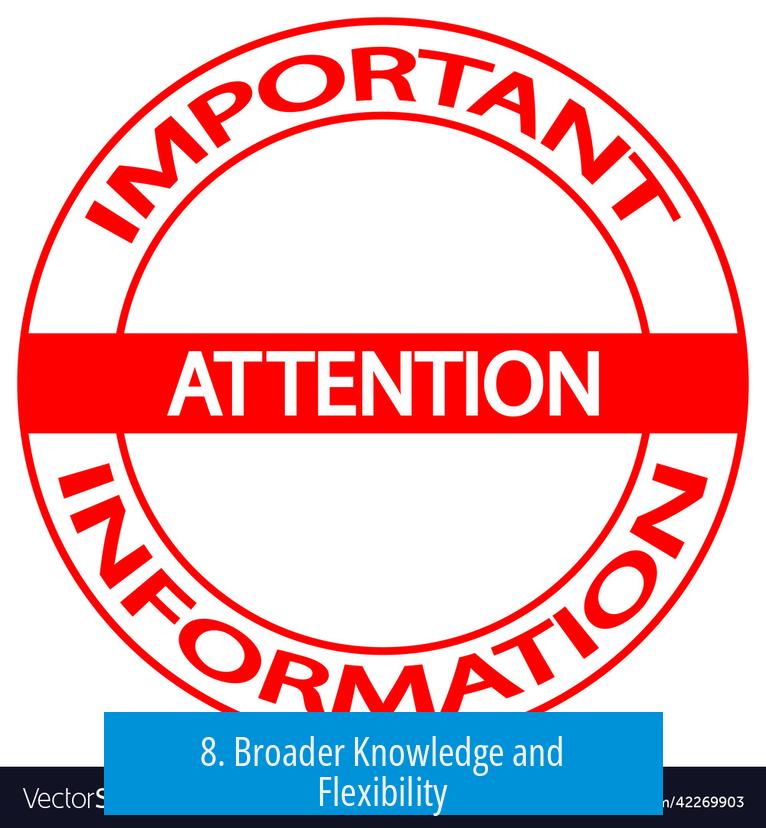
Stay open to alternative methodologies and evolving technologies.
- Investigate less common synthetic routes or reagent substitutions documented in the literature.
- Understand novel approaches, for example, electrochemical reductions, and how they might be implemented.
- Remain willing to learn new equipment and techniques beyond your comfort zone to enhance productivity.
9. Practical Hands-On Experience
Theoretical knowledge is important, but practical laboratory skills are paramount.
- Repeated hands-on practice with synthesis builds intuition for reaction behavior and troubleshooting.
- Experience with varied reactions develops dexterity and problem-solving speed.
- Recognize that expertise grows from consistent practice, not solely from memorizing mechanisms or named reactions.
10. Medicinal Chemistry Perspective (Optional)
For those pursuing medicinal chemistry, efficient synthetic routes matter beyond just feasibility.
- Design synthetic pathways that enable rapid analog synthesis to support drug discovery campaigns.
- Focus on route versatility and adaptability to access multiple derivatives swiftly.
Key Takeaways
- Master essential analytical techniques like TLC and NMR for real-time reaction monitoring.
- Prepare solvents and reaction setups meticulously to reduce unwanted side reactions.
- Develop experimental strategies that incorporate quick failure assessment and mechanistic troubleshooting.
- Understand reaction mechanisms and critically evaluate literature procedures.
- Prioritize safety, maintain lab organization, and communicate openly with peers.
- Practice patience and keep precise records; hands-on experience is irreplaceable.
- Gain familiarity with scaling reactions and alternative methodologies to improve resilience.
- Be open to adopting new technologies and expanding your synthetic toolbox.
Important skills to refine as aspiring synthetic chemist

What are the essential skills an aspiring synthetic chemist must sharpen? It’s a question brimming with challenge and opportunity. Synthetic chemistry is both art and science, a delicate dance of molecules and mechanisms where mastering one’s tools and mindset is crucial. Let’s dive into a richly detailed guide on key skills every budding synthetic chemist needs.
Imagine having your favorite recipe book but not quite knowing how to perfect the dish until you master your kitchen techniques. That’s synthetic chemistry. You need the practical kitchen tools—in this case, lab techniques—and the mindset to troubleshoot, innovate, and push experiments beyond the expected. So, buckle up!
1. Analytical Technique Mastery: Your Molecular Microscope
First and foremost, analytical skills form the backbone of a chemist’s lab prowess. You need tools that peek into your reaction, tell you what’s materializing, and reveal impurities before you proceed.
- Thin Layer Chromatography (TLC) – TLC is your best friend. It’s like having X-ray vision into your flask. Use it religiously to monitor reactions, confirm product formation, and ensure proper phase separation after workups. It’s quick and so much more informative than hoping for the best.
- Nuclear Magnetic Resonance (NMR) – Understand and master 1H NMR and advanced techniques like COSY, HSQC, HMBC. Picture NMR as your molecular selfie. Always record spectra to check starting materials for degradation or contamination. NMR also validates your reaction’s progress before you waste time on purification.
- Workup and Purification – Flash column chromatography haunts many undergrads but mastering it gives you power over purification. Know your solvents, frits, and column packing well. Good purification is the difference between a mediocre chemist and a reliable one.
Could a chemist survive without TLC or NMR? Technically yes, but practically: no. TLC saves tons of time and NMR saves countless headaches. Together they’re the dynamic duo of organic synthesis.
2. Solvent and Reaction Setup Expertise: Because Molecules are Picky
Solvents carry hidden dangers—oxygen and water lurk in every bottle unless you’re vigilant.
Dry and degass your solvents every time. Set up your reactions under inert atmospheres whenever needed. Learn to use solvent purification systems effectively, activate molecular sieves properly, and master techniques like freeze-pump-thaw cycles. It sounds tedious, but these prep steps preserve your sensitive reagents and ensure reproducible results.
Don’t forget safety! Protect yourself and others by understanding waste management and keeping your setups tidy and simple. Overcomplicated setups often lead to errors or accidents. Remember: safety is non-negotiable and the cost of negligence is high.
3. Experimental Design and Failure Handling: The Real Growth Zone
Here’s some hard truth: most reactions will fail when you try them. And that’s okay. Hard things don’t mean you’re bad—they mean you’re learning.
- Accept Failure with Grace – Hardly anyone nails a new synthesis on the first try. Expect setbacks and prepare to iterate. It’s a journey, not a sprint.
- Fail Fast, Pivot Faster – Design experiments that quickly tell you if your approach is worth pursuing. If it’s not, pivot to another hypothesis or strategy without getting stuck.
- Troubleshoot Like a Pro – Resist the urge to just increase temperature or dump more reagents to “fix” issues. Instead, think mechanistically. Understand the reaction pathway and look for alternative catalysts, conditions, or side reactions.
- Develop Your Thought Process – Your mindset shapes success. Lab skills are necessary but your unique way of tackling problems sets you apart.
What failures taught some chemists may surprise you. They revealed hidden side reactions, prompted better purification methods, and inspired more reliable synthesis routes.
4. Understanding Reaction Mechanisms and Literature: Chemistry Beyond “Follow the Steps”

Don’t just copy procedures blindly. Understand the “why” behind each step. Know how and why reagents, solvents, and additives were chosen.
Reading literature critically is a superpower. It saves wasted time and points you to optimization opportunities. Asking questions like “Why did the authors use this solvent?” can highlight clues about solubility or selectivity critical to your success.
Mastering reaction mechanisms opens doors to designing alternatives, spotting potential pitfalls, and applying similar logic to unusual systems.
5. Safety and Laboratory Conduct: The Unseen Foundation
Gloves and goggles are the bare minimum.
- Read safety data sheets (SDS) every time you handle unfamiliar chemicals.
- Keep your workspace clean and organized. A tidy lab reduces mistakes and accidents.
- Respect communal equipment. Participate actively in cleaning and maintenance. This builds goodwill and ensures tools are ready when you need them.
- Help analytical teams by providing well-prepared samples and clear requests. Don’t let them waste time hunting for your product.
When safety is ignored, experiments fail or worse, people get hurt. Treat safety as an integral skill, not a checkbox.
6. Patience, Organization, and Collaboration: The Human Element
Hurrying leads to mistakes. When in a rush, “go slow” becomes an invaluable mantra. Patience saves you endless cycles of repeating experiments due to overlooked steps.
Keep meticulous records. It’s easy to forget details that seemed minor but end up crucial for troubleshooting future problems.
Ask questions. Don’t fear looking “dumb.” Most experienced chemists are happy to share insights. Collaboration speeds learning and opens unexpected pathways.
Think about chemistry as a team sport, not a solo competition.
7. Scalability and Process Awareness: From Bench to Industry
Scaling reactions isn’t just increasing the quantities. Physical properties, heat transfer, mixing all behave differently at scale.
Understanding how and why reactions fail when scaled up is a huge advantage, especially if you want to bridge academic research and industry.
For example, spotting substitute reagents when a supplier runs out can protect your project’s timeline and position your organization as a leader.
8. Broader Knowledge and Flexibility: Thinking Outside the Flask
Know alternative synthetic routes—even those rarely used. Think “what if” you encounter a supply chain disruption or a sudden reagent shortage. Could you make the product electrochemically? Could you tweak the reaction to use greener solvents?
Being a synthetic chemist means staying nimble mentally, ready to incorporate new technologies and methods as they arise.
Many fall into the trap of doing the same reaction in the same way for years. Don’t be that chemist.
9. Practical Hands-On Experience vs Knowledge: Learning to Cook Your Omelette
Imagine studying cooking recipes for years but fizzling out your first dozen omelettes. That’s synthetic chemistry without hands-on experience.
Theory and knowledge of mechanisms are vital, but real lab time developing intuition, adapting protocols, and fine-tuning conditions is irreplaceable.
Spend plenty of time behind the bench. Make mistakes. Experience builds skills that textbooks can’t teach.
10. Medicinal Chemistry Perspective (Optional Insight): Beyond Synthesis
For those dipping toes into medicinal chemistry, retrosynthesis is just the start.
Design routes that allow quick generation of analogs for testing. Thinking about how to build libraries of analogs rapidly can make a huge difference in drug discovery campaigns.
It’s not just about making a compound, but making many variations quickly and efficiently.
As you can see, becoming a proficient synthetic chemist demands a blend of technical mastery, mental resilience, safety awareness, and interpersonal skills. It’s a craft honed through continuous learning and hands-on practice. The chemistry world rewards those who can think critically, fail fast, and adapt fluidly.
So, what will you refine first? The trusty TLC plate or maybe your patience? Whatever you choose, remember: in synthesis, curiosity and persistence are your strongest reagents.
What analytical techniques should aspiring synthetic chemists focus on mastering?
Thin Layer Chromatography (TLC) and Nuclear Magnetic Resonance (NMR) are essential. TLC helps track reactions quickly. NMR aids in checking purity and reaction progress using various spectra like 1H, COSY, and HSQC.
How important is understanding reaction mechanisms for a synthetic chemist?
It’s crucial. Knowing why each step is done, how reactions proceed, and what solvents or additives do helps you not just follow procedures but also adapt or troubleshoot them effectively.
Why is learning to handle and learn from failure key in synthetic chemistry?
Most reactions won’t work initially. Learning from failure teaches you to design fast ‘go/no-go’ tests, pivot when needed, and refine your approach rather than just repeating the same steps.
What role does safety and lab conduct play for aspiring synthetic chemists?
Safety ensures no accidents; always wear PPE and know materials well. Keeping the lab clean and respecting communal equipment improves efficiency and cooperation.
How does scaling reactions impact synthetic chemistry skills?
Scaling up or down requires understanding why reactions may fail at different quantities. It aids in process reliability and can impact research or industrial success.
Why should synthetic chemists develop patience and organizational habits?
Rushing causes mistakes and waste. Patience ensures careful execution. Keeping detailed records of experiments and errors helps solve future problems faster and supports better collaboration.


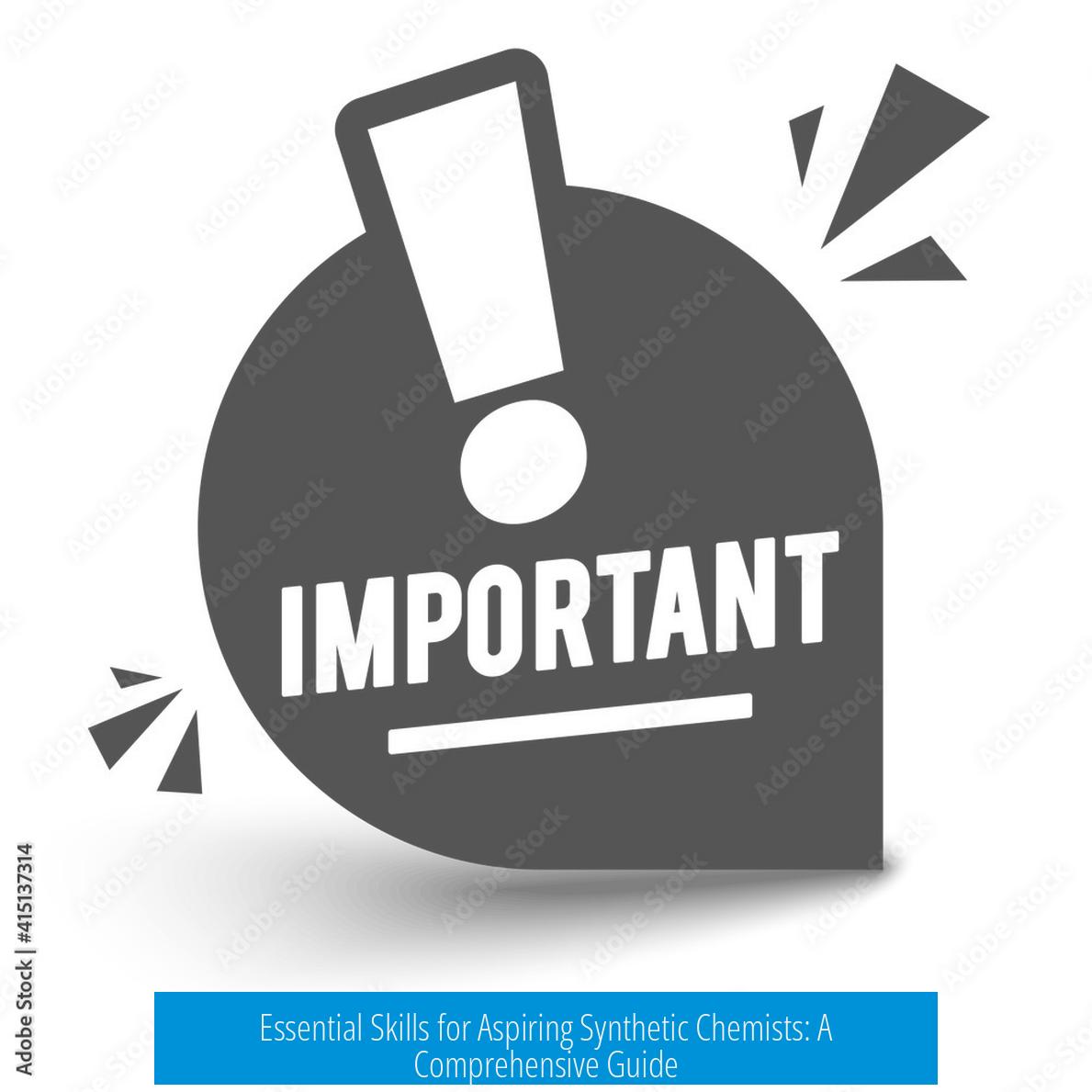
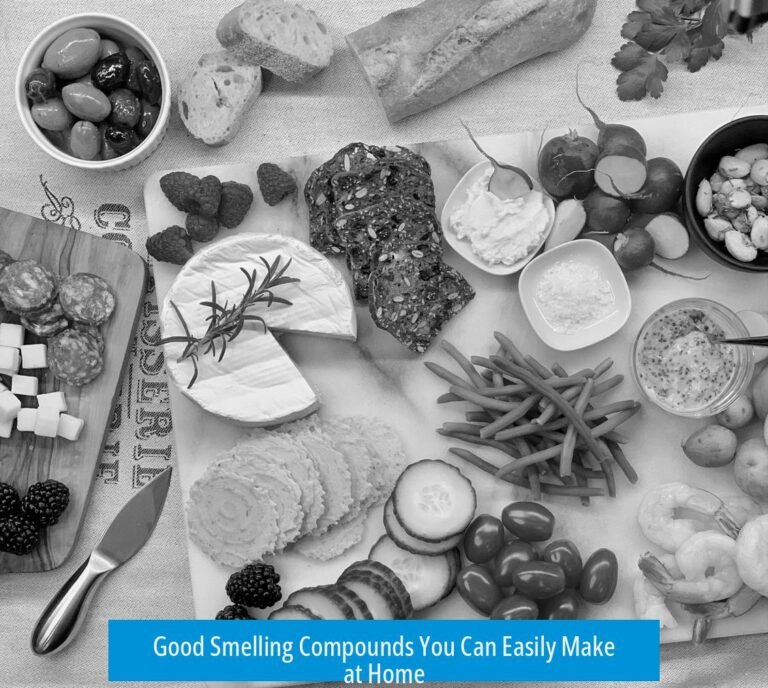
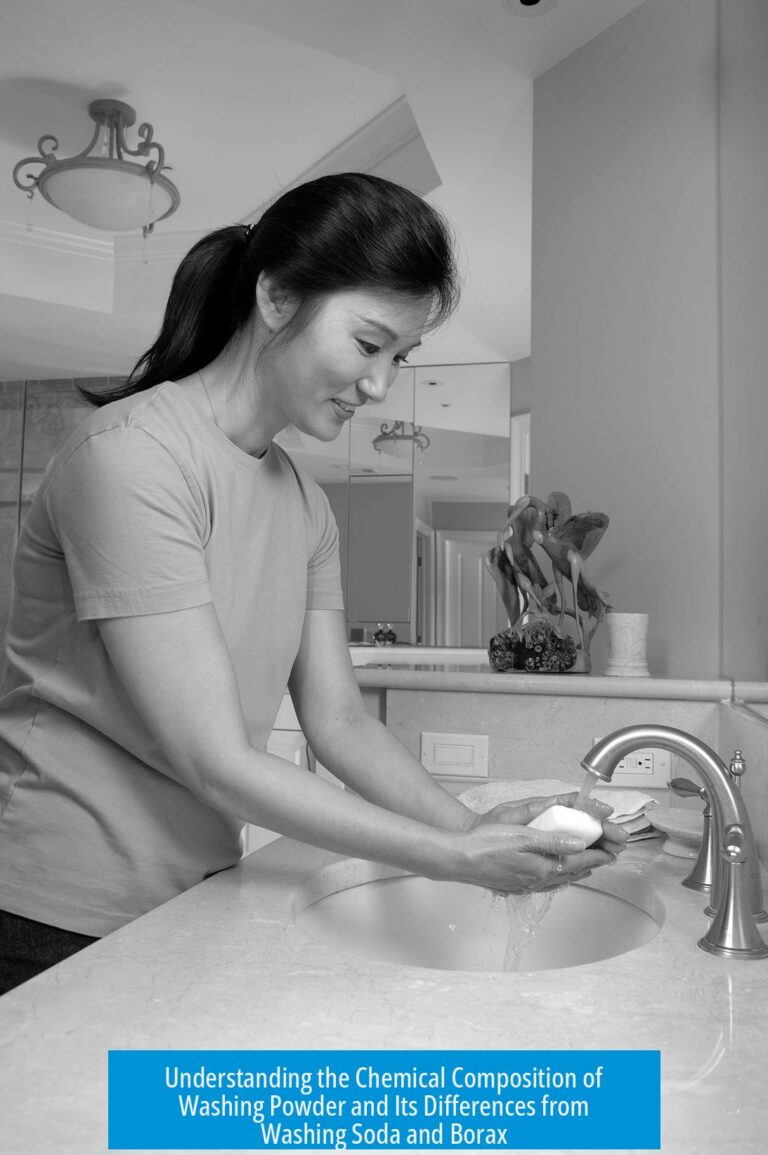
Leave a Comment